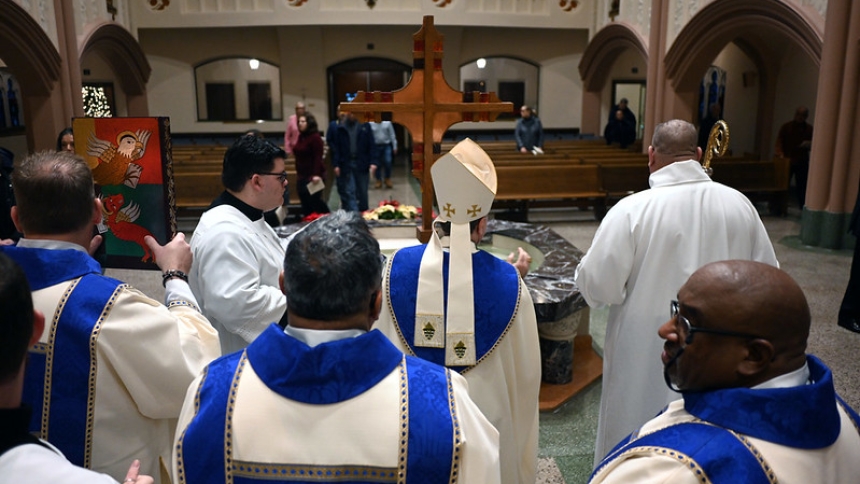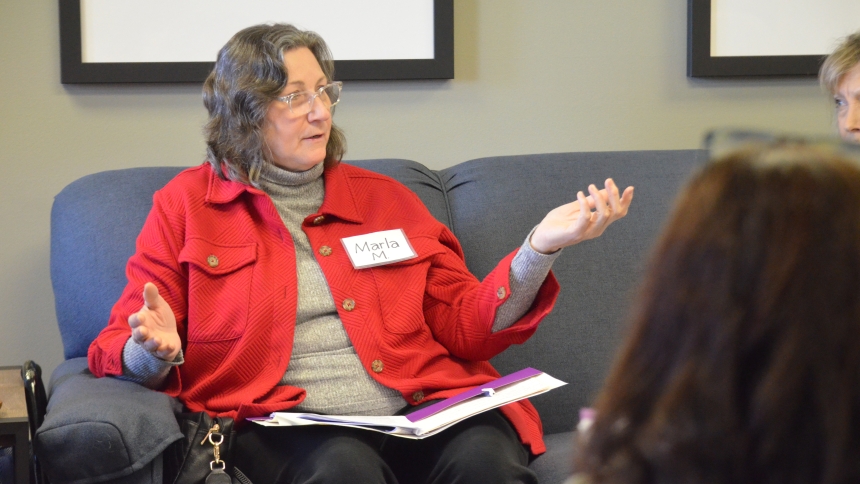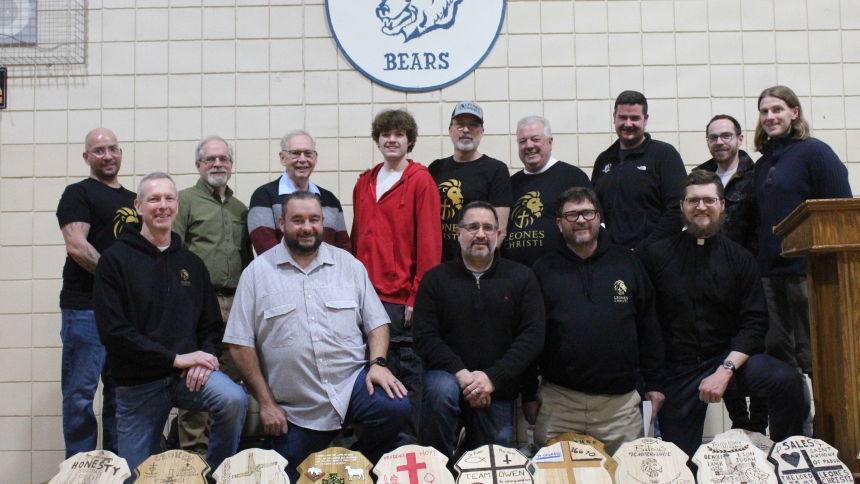
Our jubilee year has begun under the theme “Pilgrims of Hope.” Last Sunday we had a beautiful inauguration of the jubilee year at our Cathedral of the Holy Angels.
Pope Francis recently issued a reflection on the jubilee year reminding us of the biblical origins of a year of jubilee. He also drew attention to a particular feature of the 50-year jubilees of the Old Testament, the forgiveness of debt:
“In the history of the people of Israel, the sound of a ram’s horn called yobel - from which the term ‘jubilee’ originates – echoed through every village, marking the start of a special year as prescribed by the Law of Moses (cf. Lv 25).
The jubilee year was a time of redemption and renewal, symbolized by practices that remain strikingly relevant even today. During this year, the land was left uncultivated to remind people that it belongs to God and is a gift entrusted to humanity for stewardship rather than exploitation. Debts were forgiven to restore social justice and counter inequality, a practice that occurred every fifty years.”
While the Old Testament practice included the forgiveness of monetary and material debts, we may also look to the words of Jesus about debt. In Matthew’s version of the Our Father, we read: “forgive us our debts, as we forgive our debtors;” (Mt 6:12). Our standard version of the Our Father states “forgive us our trespasses as we forgive those who trespass against us.” This is a different translation of the same underlying concept: we ask God to forgive us and are called to forgive others.
By sinning or “trespassing” God’s commands, we offend God and neighbor and find ourselves incurring a “debt.” As others sin or trespass against us, we fall into thinking that they have got to make this right in some way by paying back the “debt” of their transgression. Jesus came to set us free from our debts/trespasses/sins.
We can never “repay God” for our sins, so we call upon him to give us that favor of forgiveness. He freely forgives us in Jesus Christ. The sacrament of penance or reconciliation is the pathway for the forgiveness of our sins, and for serious sins we are obliged to seek out the sacrament. God the Father delights in forgiving us.
Perhaps more challenging for us is the need in this jubilee year to forgive the debts of others. We are prone to hold on to all the grievances we have against others. To forgive debt during the jubilee year means that we should reflect on those whom we need to forgive.
Forgiveness doesn’t mean that we need to remain in harm’s way or say the offense didn’t bother us – but it means we must find a way to forgive that debt. This can be hard but is also very freeing for us and the transgressors, whether they are aware of it or not.
Among the initiatives that the cathedral rector, Father Michael Surufka, OFM, announced at our jubilee Mass is that throughout this year the Franciscan friars of the cathedral will be offering on the first Friday of each month, a 7 a.m. Mass followed by Eucharistic adoration and confessions offered all day until 7 p.m. This is a beautiful opportunity to seek out the sacrament.
Take the time this jubilee year to make the sacrament of reconciliation a more prominent part of your life and ask God to reveal to you those you need to forgive. That’s a great way to enter into the jubilee year and be a true pilgrim of Hope.
Merry Christmas!
Your servant,
Most Reverend Robert J. McClory
Bishop
Diocese of Gary
Jubileo Peregrinos de Esperanza: ¿Perdón de la deuda?
Nuestro año jubilar ha comenzado bajo el lema "Peregrinos de esperanza". El domingo pasado tuvimos una hermosa inauguración del año jubilar en nuestra Catedral de los Santos Ángeles.
El Papa Francisco publicó recientemente una reflexión sobre el año jubilar recordándonos los orígenes bíblicos de un año jubilar. También llamó la atención sobre una característica particular de los jubileos de 50 años del Antiguo Testamento, el perdón de la deuda:
En la historia del pueblo de Israel, el sonido de un cuerno de carnero llamado yobel - del que procede el término «jubileo» - resonaba en todos los pueblos, marcando el comienzo de un año especial según lo prescrito por la Ley de Moisés (cf. Lv 25).
El año jubilar era un tiempo de redención y renovación, simbolizado por prácticas que siguen siendo sorprendentemente relevantes incluso hoy en día. Durante este año, la tierra se dejaba sin cultivar para recordar a la gente que pertenece a Dios y es un don confiado a la humanidad para que lo administre en lugar de explotarlo. Se perdonaban las deudas para restablecer la justicia social y contrarrestar la desigualdad, una práctica que tenía lugar cada cincuenta años».
Aunque la práctica del Antiguo Testamento incluía el perdón de las deudas monetarias y materiales, también podemos fijarnos en las palabras de Jesús sobre la deuda. En la versión de Mateo del Padre Nuestro, leemos: «perdónanos nuestras deudas, como nosotros perdonamos a nuestros deudores» (Mt 6,12). Nuestra versión estándar del Padrenuestro dice «perdona nuestras ofensas como nosotros perdonamos a los que nos ofenden». Se trata de una traducción diferente del mismo concepto subyacente: pedimos a Dios que nos perdone y estamos llamados a perdonar a los demás.
Al pecar o "transgredir" los mandamientos de Dios, ofendemos a Dios y al prójimo y nos encontramos contrayendo una "deuda". Cuando otros pecan o transgreden contra nosotros, caemos en el pensamiento de que ellos tienen que enmendar esto de alguna manera pagando la "deuda" de su transgresión. Jesús vino a liberarnos de nuestras deudas/infracciones/pecados.
Nunca podremos "pagar a Dios" por nuestros pecados, así que le pedimos que nos conceda el favor del perdón. Él nos perdona gratuitamente en Jesucristo. El sacramento de la penitencia o reconciliación es el camino para el perdón de nuestros pecados, y para los pecados graves estamos obligados a buscar el sacramento. Dios Padre se complace en perdonarnos.
Tal vez sea más desafiante para nosotros la necesidad, en este año jubilar, de perdonar las deudas de los demás. Somos propensos a aferrarnos a todos los agravios que tenemos contra los demás. Perdonar las deudas durante el año jubilar significa que debemos reflexionar sobre aquellos a quienes tenemos que perdonar.
Perdonar no significa que tengamos que seguir haciendo daño o decir que la ofensa no nos ha molestado, sino que debemos encontrar la manera de perdonar esa deuda. Esto puede ser duro, pero también es muy liberador para nosotros y para los transgresores, sean o no conscientes de ello.
Entre las iniciativas que el rector de la catedral, el Padre Michael Surufka, OFM, anunció en nuestra Misa jubilar, está que durante todo este año los frailes franciscanos de la catedral ofrecerán el primer viernes de cada mes, una Misa a las 7 a.m. seguida de adoración eucarística y confesiones ofrecidas durante todo el día hasta las 7 p.m. Esta es una hermosa oportunidad para buscar el sacramento.
Tómate el tiempo este año jubilar para hacer del sacramento de la reconciliación una parte más prominente de tu vida y pídele a Dios que te revele a aquellos que necesitas perdonar. Es una gran manera de entrar en el año jubilar y ser un verdadero peregrino de la Esperanza.
¡Feliz Navidad!
Su servidor,
Reverendísimo Robert J. McClory
Obispo
Diócesis de Gary



